Brexit: Tom Watson steps up call for Labour referendum pledge
- Published
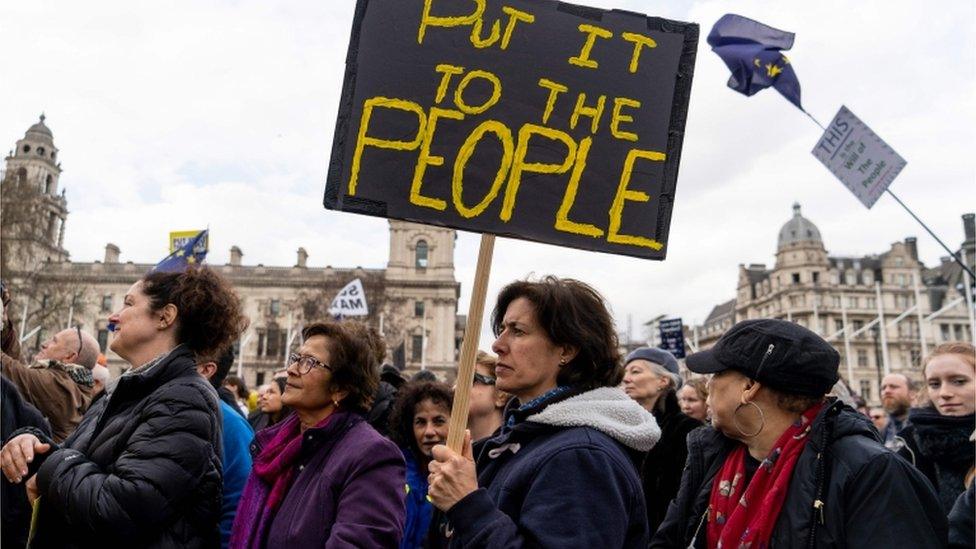
More than 90 Labour MPs and MEPs have urged commitment to a public vote on any Brexit deal agreed
Labour's deputy leader has stepped up calls for his party to promise a referendum on any Brexit deal in its European elections manifesto.
Tom Watson urged party members, external to message Labour's ruling national executive committee to call for a "confirmatory ballot" pledge.
The NEC meets on Tuesday to decide on Labour's campaign manifesto.
But frontbencher Barry Gardiner said a referendum on any Brexit deal would be a change in Labour policy.
The shadow international trade secretary told BBC Radio 5 Live's Pienaar's Politics that the party's policy agreed at last year's conference was to go for a referendum "to stop a no-deal or a bad Tory Brexit."
He added: "If we are being pushed into a no-deal by this government, we will have a second referendum. But we want to try - and that's why we're in there with the government now - trying to deliver on what people voted for."
Hundreds of thousands of people marched in central London last month to call for another EU referendum.
Labour agreed a policy at its last conference that if Parliament voted down the government's deal or talks end in no-deal, there should be a general election.
But if it cannot force one, it added, the party "must support all options remaining on the table, including campaigning for a public vote".
However, following parliamentary deadlock and a refusal by MPs to approve the withdrawal deal negotiated between the EU and UK, Labour has entered into cross-party talks with the Conservatives to see if they can reach a consensus.
And many Labour members now want the party to make its agreement to any deal conditional on it being put to a public vote - what Labour calls a "confirmatory ballot".
Mr Watson has been among figures calling for that pledge to be included in Labour's European Parliamentary elections campaign, arguing it is needed to counter the electoral challenge posed by Nigel Farage's newly formed Brexit Party.
On Friday it emerged that more than 90 Labour MPs and MEPs had written to the NEC, urging a "clear commitment" to a public vote on any Brexit deal agreed.
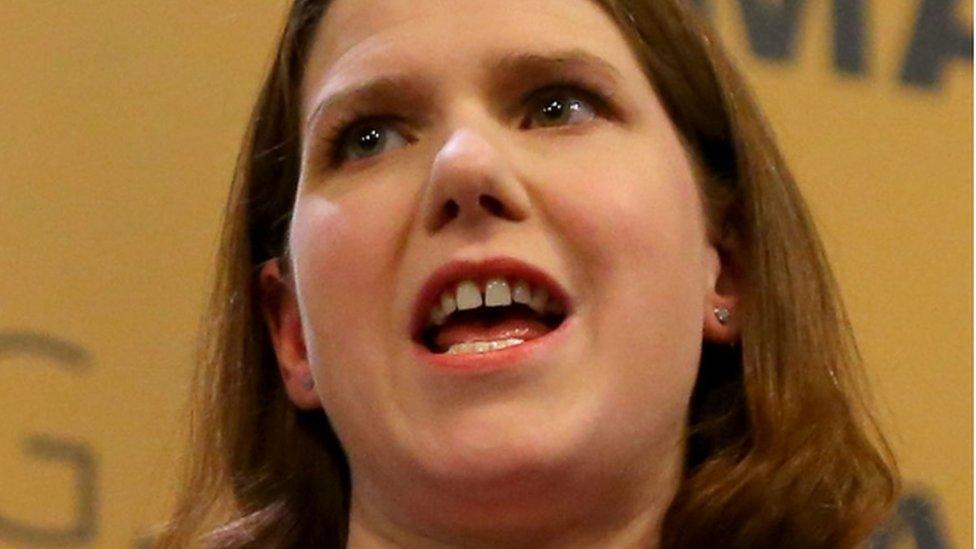
Lib Dem deputy leader Jo Swinson's party is campaigning to stop Brexit
Asked whether another referendum was a "red line" for Labour in the talks, shadow business secretary Rebecca Long-Bailey told Sky News: "We are not being hugely prescriptive on the minute detail of specific elements because we are willing to compromise and we are willing to be flexible".
She said she was "hopeful" that in coming weeks "we will see some movement" in the talks.
If all of the party's criteria was not met, she said "all options are on the table which includes campaigning for a public vote".
And shadow communities secretary Andrew Gwynne told the BBC's Andrew Marr Show he expected the NEC to "endorse Labour's policy that came out of the conference".
Mr Gwynne said: "I want to ensure that we avoid a bad Tory Brexit or a no-deal scenario. In those circumstances, yes, I think that wasn't on the ballot paper in 2016, we should then perhaps ask the people 'is this actually what you want, a confirmatory vote, do you support what the government's proposition is?'.
"But let's see what comes out of these talks because I hope that the government can move on some of these red lines so that we can get a more sensible approach towards Brexit going forwards."
But Lib Dem deputy leader Jo Swinson, whose party launched its European parliamentary elections campaign on Friday with a "stop Brexit" message, told the BBC: "Every Liberal Democrat vote is a vote to stop Brexit.
"A vote for Labour is a vote for Brexit. Nigel Farage and Boris Johnson will use those votes to say the British people want Brexit to happen."
There is some opposition to another referendum within Labour, amid concern about alienating party voters who backed Leave.
Earlier this month 25 Labour backbenchers wrote to Mr Corbyn, urging him to rule one out and arguing that it would "be exploited by the far right, damage the trust of many core Labour voters and reduce our chances of winning a general election".
- Published26 April 2019
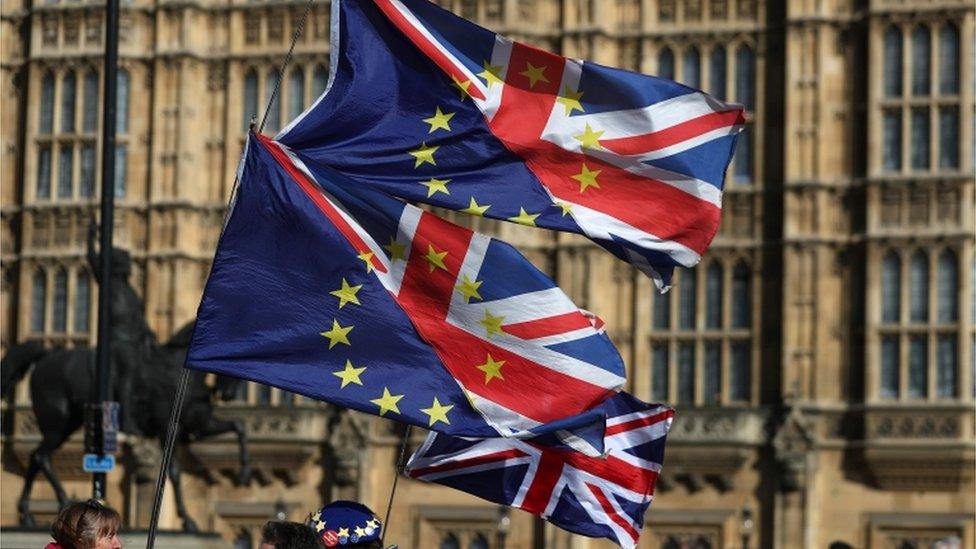
- Published13 July 2020
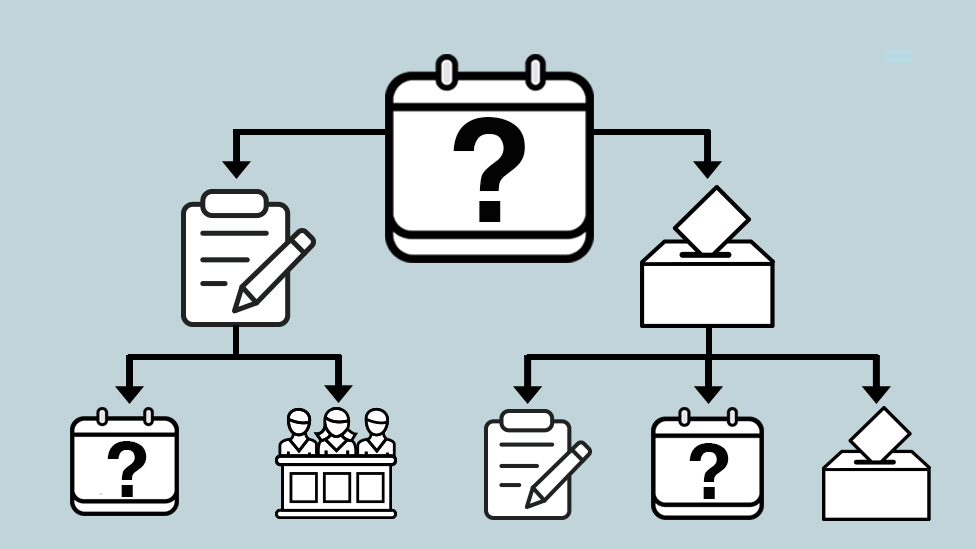
- Published21 April 2019
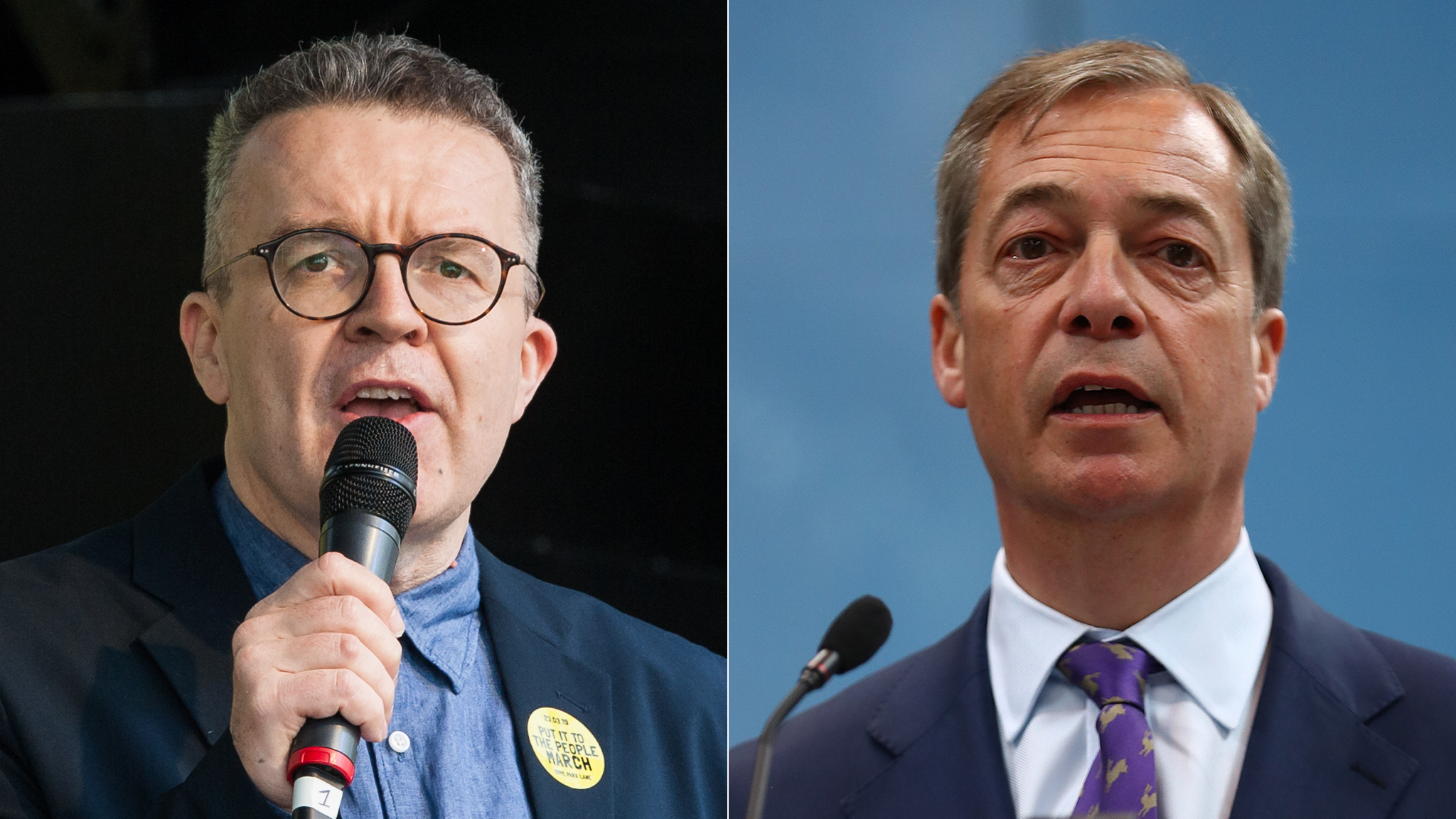
- Published30 December 2020
